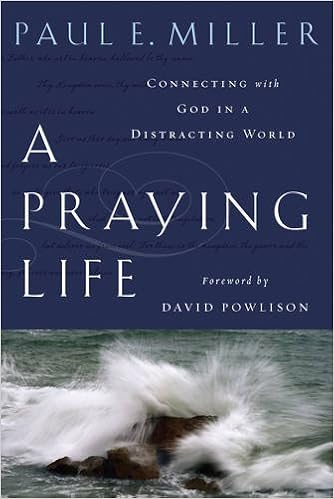Prayer

In our Sunday morning preaching series we recently looked at the outstanding prayer of Daniel in Chapter 9. His prayer contained adoration and heartfelt specific confession followed by a bold, audacious request for God to glorify his name by forgiving his people and restoring them to their homeland.
For Daniel, God’s purposes and God’s kingdom were of more importance than his own kingdom or well-being. His prayers that have become scripture for us were themselves fuelled by scripture
Use scriptural promises to fuel your prayers
Daniel was reading the book of Jeremiah and this led him to the realisation that according to God’s word the time of the exile was coming to an end. But at the same time he could see the great obstacles – the might of the Medo-Persian Empire; the desolation and weakness of Jerusalem and even more, the sin of the people. And yet he prays.
We can take the promises of God and pray them back to him – promises to always be with us, even in the toughest trials, promises to build the church, promises to supply wisdom, promises to lift us up as we humble ourselves, promises to ultimately vindicate his name.
Use scripture to help you know what to pray for
Praying from scripture will also mean applying the Bible to our situations. We can ask questions of the text to focus our prayers. Here are a few examples of questions we might ask:
What are the lessons from this text that I need to pray for God’s help to apply?
What does this text show me about God – Father Son and Holy Spirit – his character, plans and actions. How should these lead me to praise or thank him?
What does this teach me about God’s will and kingdom that I want to pray for?
What does this text show me about my sin that I should confess and repent of?
What does the text show me about a need that I have or a need in the world?
How is Jesus, or the grace that I have in him, crucial in helping me overcome the sin I have confessed or the need I have identified?
What do I need to do or become in light of this?
(Adapted from Tim Keller’s book ‘Prayer’)
Use scriptural prayers as examples and inspiration
 There are many prayers in the Bible. Just for starters
There are many prayers in the Bible. Just for starters
The Lord’s Prayer (Matthew 6:5-15)
Moses’ Prayer for Israel in the Wilderness (Exodus 32:9-14)
David’s Prayer for Pardon and Confession of Sin (Psalm 51)
Solomon’s Prayer of Dedication at the dedication of the temple (1 Kings 8:22-61)
Daniel’s Confession on Behalf of His People (Daniel 9:1-19).
Nehemiah’s Prayer for Success (Nehemiah 1:1-2:9)
Jesus’ Prayer of Submission at Gethsemane (Luke 22:39-46).
Paul’s Prayers for Believers (Ephesians 1:15-23; 3:14-21 and many other places!)
It can also be useful to read the prayers of other Christians. One recent example some of us have really benefited from is the Valley of Vision Puritan prayers but there are many other sources.
Be spontaneous but organised
It’s great to read the Bible and pray any time anywhere, but it’s also good to have some kind of routine. Routine can be your friend not your master. Set aside some time each day to pray. Try and stick to it but be flexible as well.
It’s great to be familiar with God and speak from the heart but it’s also good to remember who God is – the mighty transcendent holy ruler of the universe. So our prayers need to express awe and wonder and at the same time intimate relationship and freedom. This helps us avoid extremes.
You wouldn’t go to your earthly father simply with a list of things to ask for – it’s also about a relationship. So don’t just have a shopping list for God even if they are right things to pray for. You are friends with God, through Jesus he is your Father. Speak to him as such.
 But then again, anyone who has a need wouldn’t go to an audience with the king or president without some respect but also a plan of what to say and what to ask for. Go to God with requests – he loves to be asked to fulfil his kingdom purposes in us – but we do need to ask. As Paul Millar in A Praying Life says “Take Jesus at his word. Ask him. Tell him what you want. Write out your prayer requests; don’t mindlessly drift through life on the narcotic of busyness. If you try to seize the day, the day will eventually break you. Seize the corner of his garment and don’t let go until he blesses you. He will reshape the day.”
But then again, anyone who has a need wouldn’t go to an audience with the king or president without some respect but also a plan of what to say and what to ask for. Go to God with requests – he loves to be asked to fulfil his kingdom purposes in us – but we do need to ask. As Paul Millar in A Praying Life says “Take Jesus at his word. Ask him. Tell him what you want. Write out your prayer requests; don’t mindlessly drift through life on the narcotic of busyness. If you try to seize the day, the day will eventually break you. Seize the corner of his garment and don’t let go until he blesses you. He will reshape the day.”
Avoid distractions
The biggest enemy of persistent prayer is distraction. Most believers see the importance and need for prayer but often other priorities get in the way. Sometimes they are genuine needs that must be met but often they are the distraction of things we’d prefer to do first. As well as doing some other activity we can be distracted by our own thoughts or by the constant chirping of our phone or PC with emails and texts that hold the promise of something interesting (although they rarely are!).
So to avoid these, have your set times of prayer and try and shut everything else off whilst you pray.
Make it sustainable
Some of us have read about Jesus praying all night or other great Christians of the past getting up extraordinarily early to pray for many hours before their day began. Maybe you can do that, but if not, praying for a few minutes each day regularly is better than doing one early morning every few months.
Remember Grace
Articles or books on prayer can often make us feel guilty and helpless or prompt us to make grand plans that we never fulfil. For all our failures we need to remember the grace of the Lord Jesus that he prays for us. For all our inadequacy we ask him to teach us how to pray.
So then, let us pray.
Written by Graham Nicholls
To get an email every time there is a new post on this website use the subscribe box on the right panel or on this page (click here)
To “share” on Facebook use this button
[facebook]
